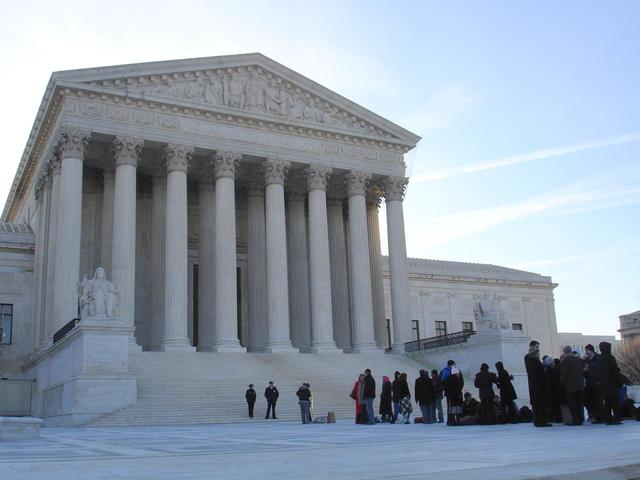Last Updated on August 3, 2022 by Michelle Ball
By Michelle Ball, Sacramento California Expulsion, Special Education, sports/CIF, College, Education and School Attorney/Lawyer for Students since 1995
Parents facing a school issue such as expulsion, suspension, a special education problem, discrimination or otherwise, often have to bring in someone to help them. Should they hire an attorney or not? What about a non-attorney advocate? What is the difference? The differences are significant.

What Makes an Attorney an “Attorney?”
An attorney (aka lawyer) is essentially someone who is licensed to practice law in the state they are in. Attorneys have a license to interpret the law and tell others what it means.
As a lawyer in California, where I am licensed, I had to go through college, then law school (7 years altogether of college) to receive my doctorate degree (JD= juris doctorate degree, the degree attorneys have). Then I had to pass the multi-day grueling examination called the “Bar Exam.”
After that, I was ethically and otherwise reviewed as a person, and allowed to join the “California State Bar,” the agency which licenses attorneys in California. I now have to pay my annual dues, and take continuing education classes.
My education gave me the ability to understand the law, and all its nuances, to interpret what it means, and to apply it to life. My license also gives me the authority to interpret the law for others.
That is essentially what makes me an attorney.
What is a Non-Attorney (aka Unlicensed) Advocate?
A non-attorney “advocate” is anyone who wants to call themselves an advocate, who says they will help a person accomplish a goal. An attorney, however, is a licensed advocate- someone with a license to advocate for their clients. I am an advocate for students and also an attorney.
An unlicensed advocate is anyone who claims to be one. They are big hearted people who try to help resolve problems. Advocates are sorely needed in our society as people need help. Advocates who are not attorneys may or may not have any advocacy training. I am unaware of any licensing for advocates who are not attorneys.
An advocate, unless they are a licensed attorney, do not have the legal authority to interpret law and tell schools what the law says. Unlicensed non-attorney advocates also usually don’t have the years of training in how to understand law, or to know what takes precedence over what. Non-attorney advocates cannot represent students in court.
All attorneys must be advocates for their clients, which is actually a requirement of the job. Different attorneys may focus in unique legal areas but we all advocate for our clients and must be loyal and true. I am licensed as an attorney so I am a licensed attorney and advocate.
I have not worked with a non-attorney advocate before, but have met with various unlicensed education advocates. They have very big hearts.
There are good non-lawyer advocates out there. Unfortunately, many of the stories I have heard are often about things that go wrong. For example, the advocate who did not know that parents had a legal right to record an IEP meeting. What? Hmmmmm.
I am sure competent non-attorney advocates are great for parents to have, but they are not a substitute for an actual attorney.
What is Advocacy?
Advocacy is fighting for a student or client to help them achieve their goals. Advocacy is different from an “Advocate.” Advocacy is an action taken as in: “Her advocacy won the day.”

Good legal advocacy means winning a matter or resolving it with the best possible result for your client (e.g. a student). Attorneys advocate. Hopefully unlicensed advocates also advocate. Non attorney advocates unfortunately, however, don’t often have the teeth of a law degree behind them.
What Is an Attorney Specialized in Education Law?
The focus of a lawyer’s legal practice is what makes that attorney a specialized attorney. I am a student attorney and advocate focusing only on student problems. I am also an education attorney as student matters occur only in education. However, I don’t represent schools, and picked one side only: the student side.
I have focused since 1995 on representing students. I devote one hundred percent (100%) of my legal practice, week after week, only to students and helping them. This focus can help when trying to attack a school expulsion, transfer denial, sports/CIF issue, or IEP (Individualized Education Program). I am a student attorney and advocate.
My question when looking into a specialized lawyer is how much time does that attorney devote to students and education law versus their other areas of practice? I devote 100 percent of my time to student representation and am highly specialized.
Should a Non-Attorney Advocate Be Tried?
In my life, I go to the most effective method of resolution when I have a problem. I don’t want things to drag out. I want to be effective.
For me, the most effective path when difficult problems arise is usually a licensed attorney. I know the power of lawyers and their knowledge. When I had a real estate problem, I brought in a real estate attorney. When a family member was cyberbullied outside the school setting by a group of internet trolls, I brought in an online cyberbullying attorney. I know the impact an attorney can have and it was worth it to me.
On some things, especially where time is important or an opportunity could be lost, an attorney would be the right option rather than a non-attorney advocate. I have had many people in my office whose advocate did their best, but ultimately the issues just got delayed, and the student lost valuable time. These parents spent time and money toward something which did not work, and ended up seeing me to try to clean things up later.
Attorneys advocate for students with their law degree and are listened to as they are licensed to interpret the law and what it means. It is important to remember that sometimes students get one shot and if a school matter is not handled the right way, or timely, the student may lose their chance forever.

Why Attorneys (Who Are Also Advocates!) Are Necessary
If you have ever received a letter from a lawyer and shook, you know why lawyers matter. Lawyers have teeth. Attorneys have the power to create a lot of legitimate trouble for schools which mess with students. They can file lawsuits, lodge investigations, and they have credibility.
Student attorneys can make life hard for schools who mess with their student clients.
When a student is being crushed to the ground, parents need an attorney who can fight.
Doesn’t an Attorney Cost More?
Yes, due to their skill and knowledge, plus their ability to interpret and communicate with authority about the law and what it means, student attorneys do cost more.
But, sometimes, to get what a parent wants, or what a student needs, it is necessary to bring in qualified legal help. Sometimes the cost is much higher to the student in the long run, if lawyers are not involved.
Michelle Ball is a student rights lawyer representing students in special education, expulsion, sports/CIF and many other school matters. An education attorney in Sacramento, she reaches across the state to Tahoe, San Diego, San Francisco, Fort Bragg, Roseville, Stockton, Elk Grove, and to many other cities.
[This communication may be considered a communication/solicitation for services]




